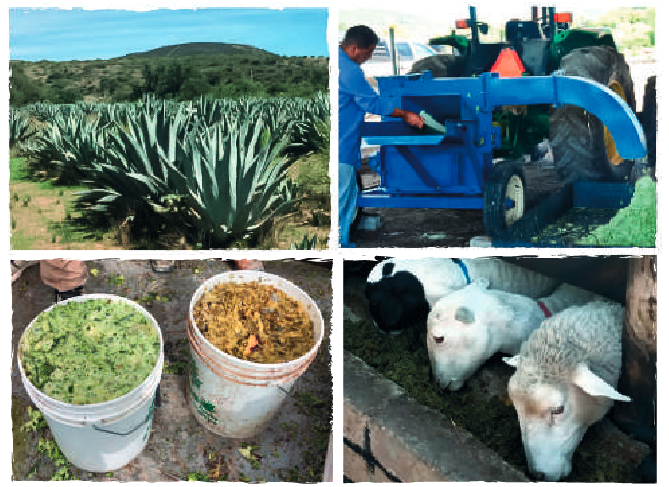Disclaimer:
Please be aware that the content herein is comprised of personal reflections, observations, and insights from our contributors. It is not necessarily exhaustive or authoritative, but rather reflects individual perspectives. While we aim for accuracy, we cannot guarantee the completeness or up-to-date nature of the content.
Address climate change, livestock feed, reforestation, and land restoration
Agave plants and nitrogen-fixing trees can reduce and isolate considerable amounts of CO2. They also produce more biomass above and below ground on a continuous basis than any other desert or semi-desert species.It is estimated that this system can absorb and store the dry weight equivalent of 30-50 tons of CO2/ha/year both above and below ground.
Currently the use of agave for land restoration is promoted by the Billion Agaves Project, which is an ecosystem regeneration strategy adopted by innovative Mexican farms located in the high desert region of Guanajuato.
This strategy combines the growth of agave plants and nitrogen-fixing companion forest species (such as mesquite), with rotational grazing of cattle. The result is a high biomass, high forage production system that works well even on degraded semi-arid lands.
The system produces large quantities of agave leaves and pineapples, up to a ton of biomass during the 8 to 10 years of the plant's life. When chopped and fermented in closed containers, the agave leaf makes excellent animal fodder and is cheap (2 cents a pound). This agroforestry system reduces overgrazing pressure on fragile pastures and improves soil health and water retention while reducing and storing enormous amounts of atmospheric CO2.
The goal of the Billion Agaves campaign is to plant one billion agaves around the world to reduce and store billions of tons of CO2 that destabilize the climate. The campaign will be sponsored by donations and public and private investments.
https://viaorganica.org/agaves/
Organization behind
Vía
Orgánica A.C is a Mexican non-profit organization whose mission is to
promote healthy eating and a sustainable future through the promotion of
knowledge and practice of organic regenerative agriculture, fair trade,
social justice, sustainable living and the protection of the planet.
 Consent to share form or official link.
Consent to share form or official link.

 12Responsible consumption and production
12Responsible consumption and production 13Climate action
13Climate action 15Life on land
15Life on land
Comments
Log in to add a comment or reply.